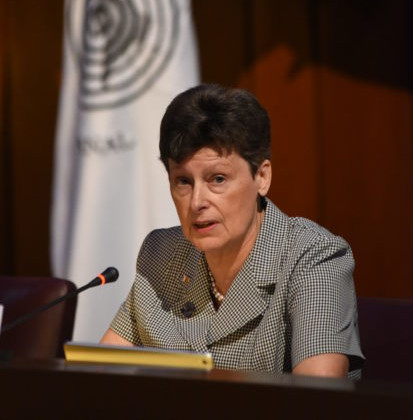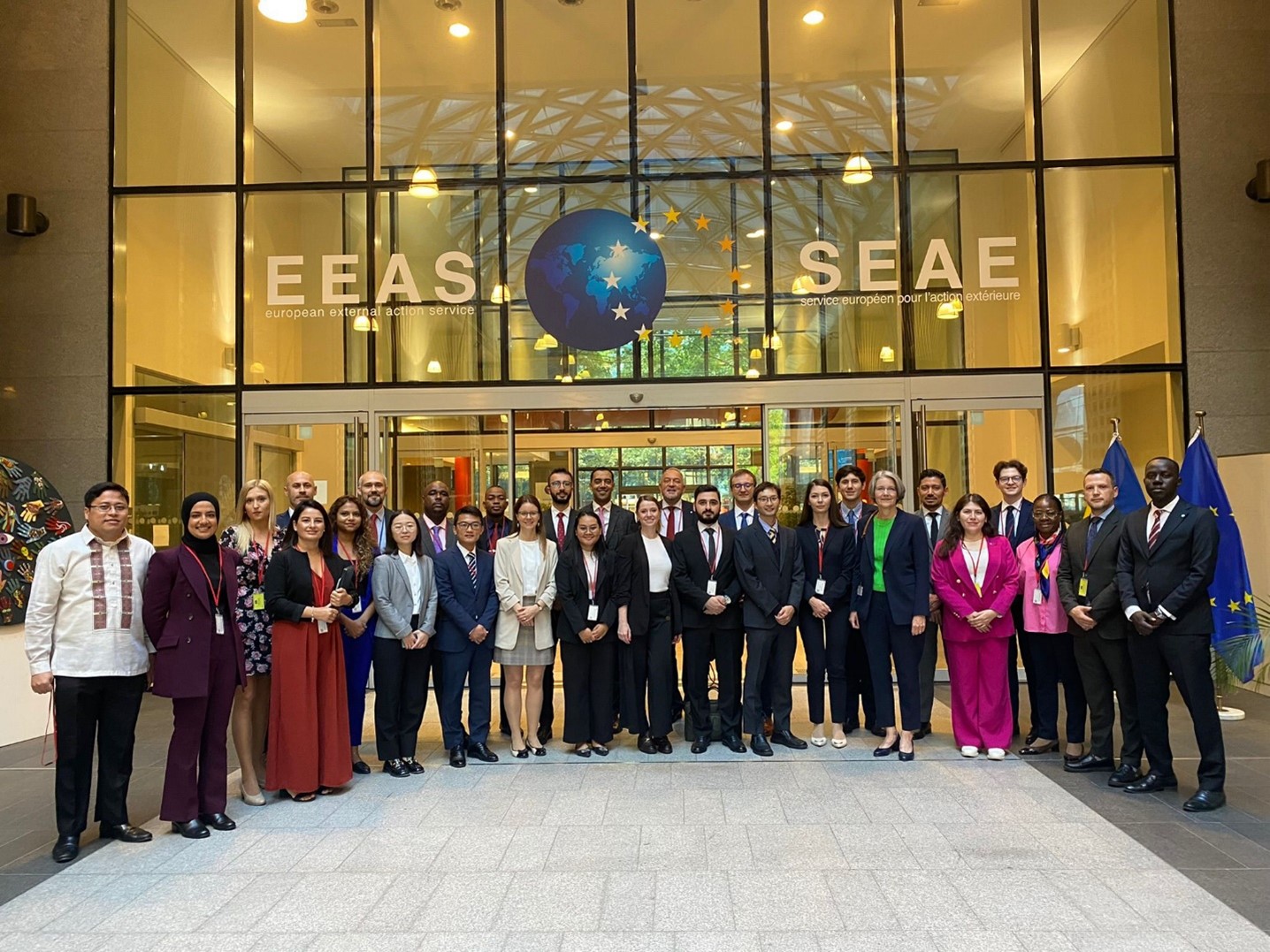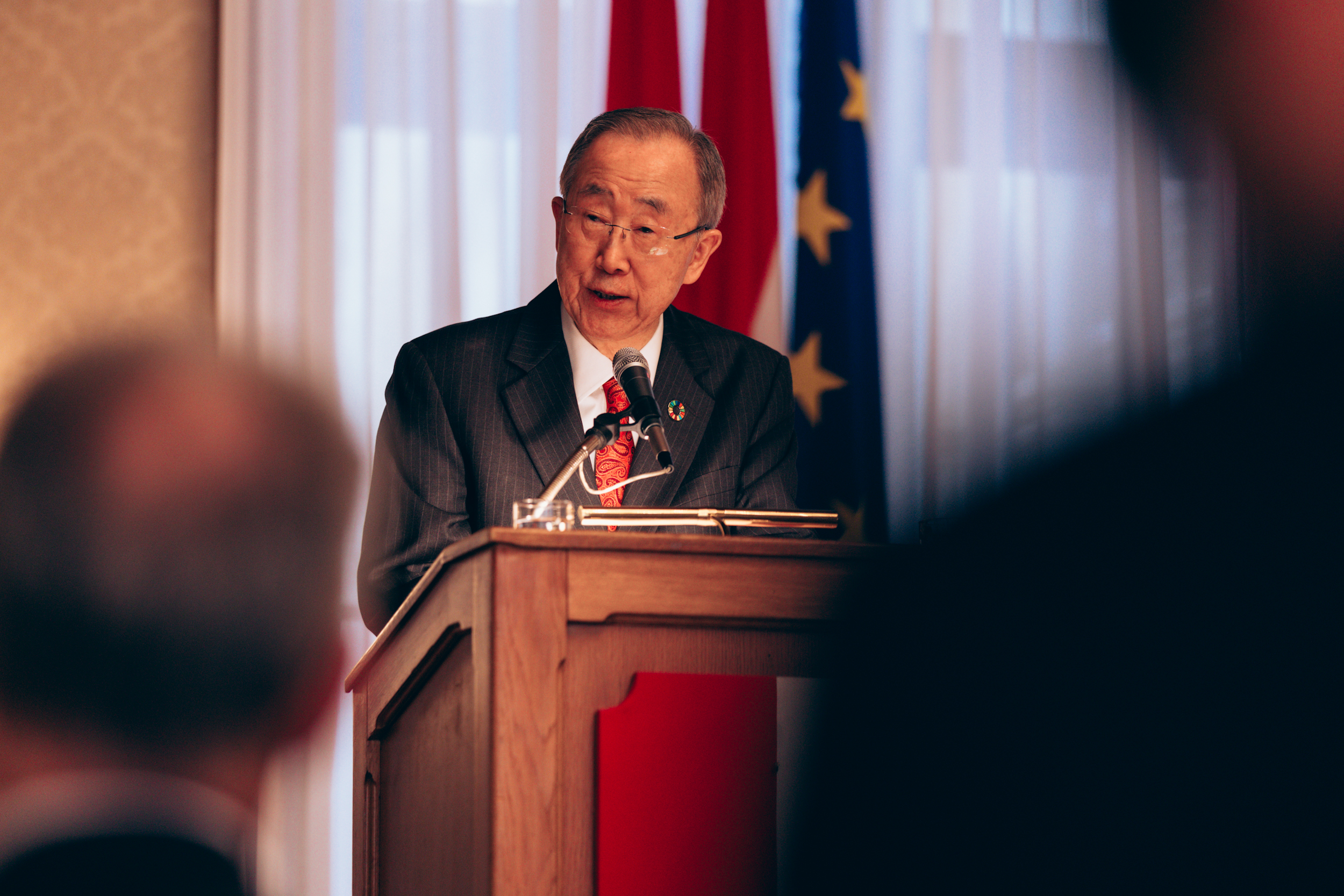
On 12 December 2024, the Vienna Center for Disarmament and Non-Proliferation (VCDNP) welcomed Ban Ki-moon, eighth Secretary-General of the United Nations, and Dr. Heinz Fischer, eleventh President of Austria, to a high-level event at the Vienna City Hall.
Against the backdrop of Vienna’s enduring legacy as a global centre for multilateral dialogue on nuclear issues, the event explored the nuclear threat landscape – from a burgeoning nuclear arms race to novel nuclear risks introduced by emerging technologies. The speakers delivered a resonant call for nuclear-armed states to prevent nuclear escalation and make tangible progress towards a world free from the threat of nuclear weapons.
"The horrors of Hiroshima and Nagasaki must not be repeated. [...] Our mission is clear: to prevent any further use of nuclear weapons and to close this dark chapter of history." - Ban Ki-moon
The event was organised in collaboration with the Ban Ki-moon Centre for Global Citizens and the City of Vienna.

Following remarks by Dr. Fischer and a keynote speech by former Secretary-General Ban, a panel of eminent experts discussed pressing challenges in nuclear non-proliferation, risk reduction, and disarmament, moderated by VCDNP Executive Director Elena K. Sokova. The panellists were:
The event concluded with a reception at the invitation of Dr. Michael Ludwig, Mayor and Governor of Vienna.
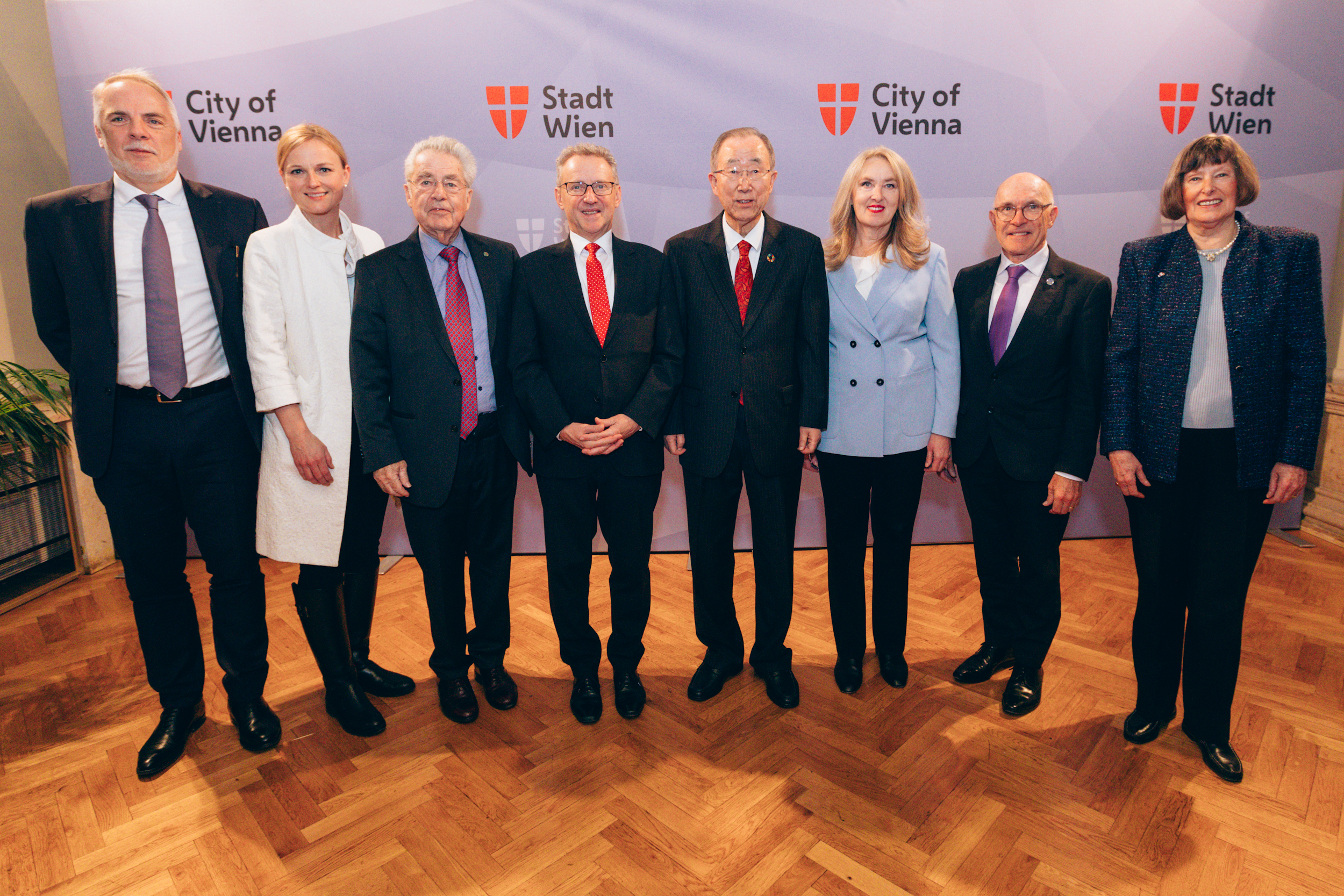
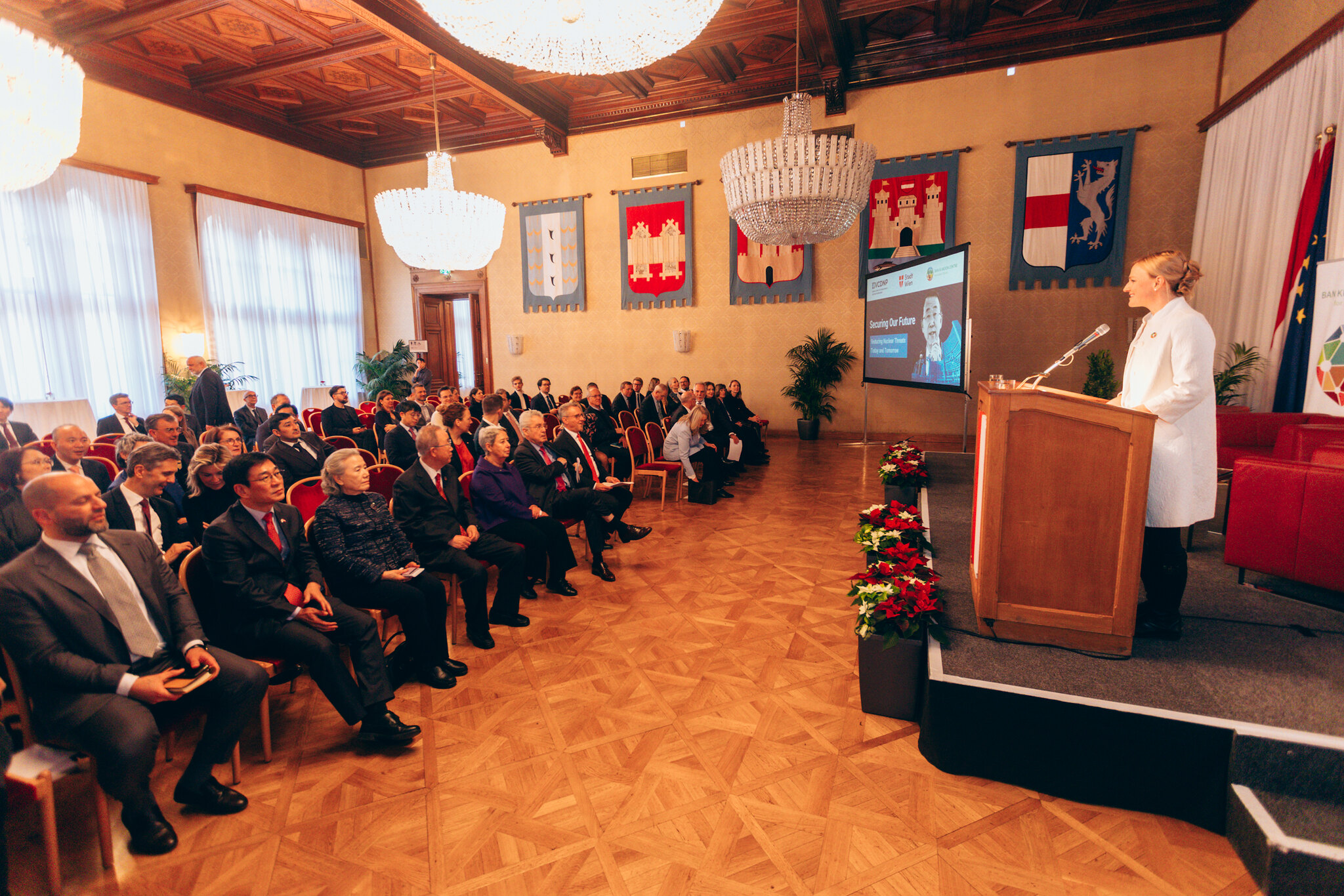
Ernst Woller, President of the City Council and Provincial Parliament of Vienna, opened the event by highlighting Vienna’s rich history as a global centre for diplomacy on nuclear issues, from the establishment of the International Atomic Energy Agency (IAEA) in 1957 and the 1961 Kennedy-Khrushchev Summit, to negotiations on the Joint Comprehensive Plan of Action (JCPOA) with Iran and the First Meeting of States Parties to the Treaty on the Prohibition of Nuclear Weapons (TPNW) in 2022.
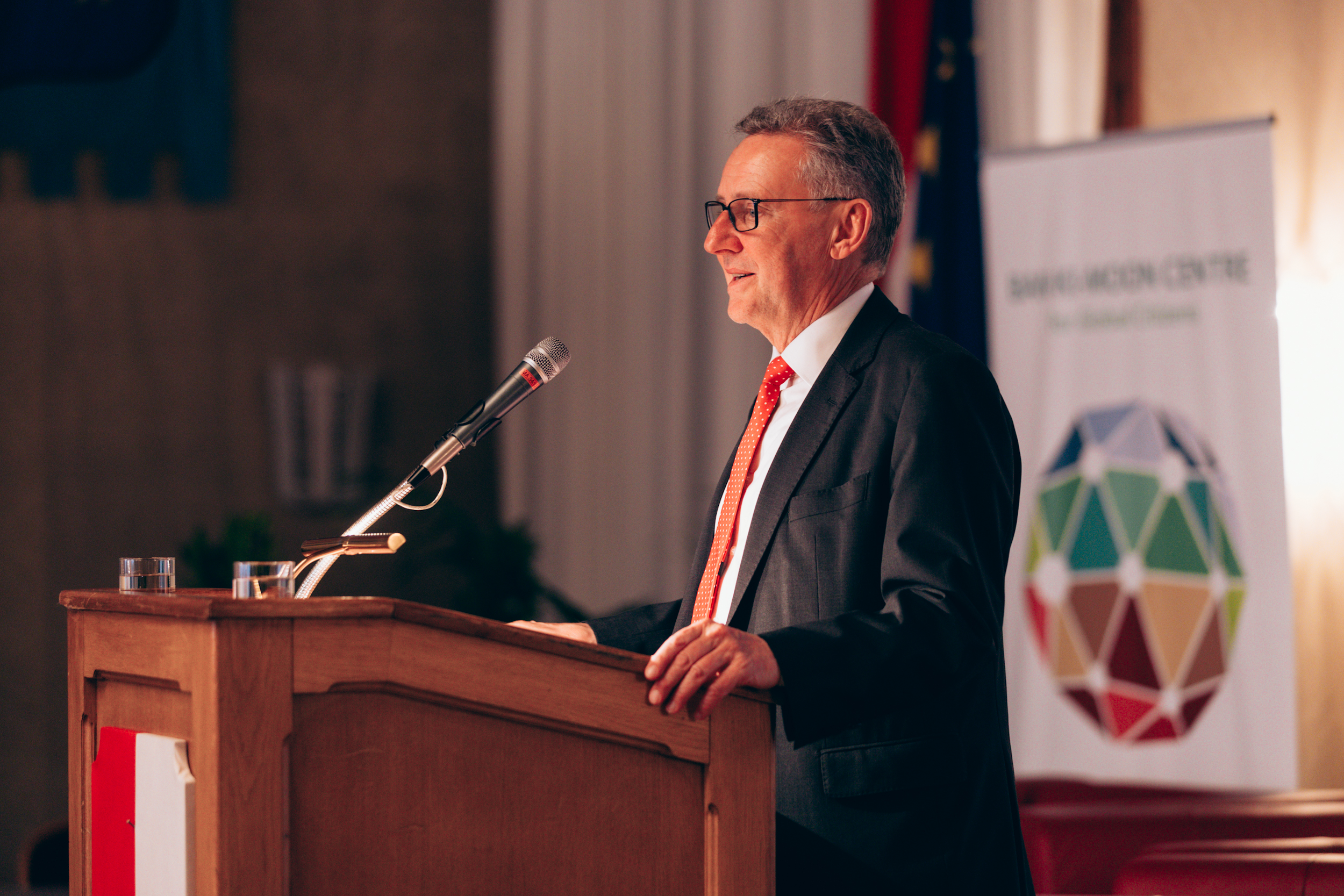
Dr. Fischer reflected on his tenure as President of Austria from 2004 to 2016 as a period of progress in arms control and non-proliferation, with the adoption of UN Security Council Resolution 1540, the conclusion of the New START Treaty between Russia and the United States, and the successful early implementation of the Iran Nuclear Deal (JCPOA).
He also highlighted Austria’s leadership in bringing global attention to the catastrophic effects of nuclear explosions on people and planet, culminating in the Treaty on the Prohibition of Nuclear Weapons (TPNW).
Dr. Fischer noted the stark contrast between those years and recent developments. Next to growing nuclear arsenals, reckless nuclear threats, and crumbling arms control agreements, artificial intelligence and novel cyber capabilities added new layers of complexity to preserving global stability. To address these challenges, Dr. Fischer advocated for trust in the multilateral system and the powerful tools it offers, namely legally binding treaties, strong international organisations, and independent monitoring and verification mechanisms.
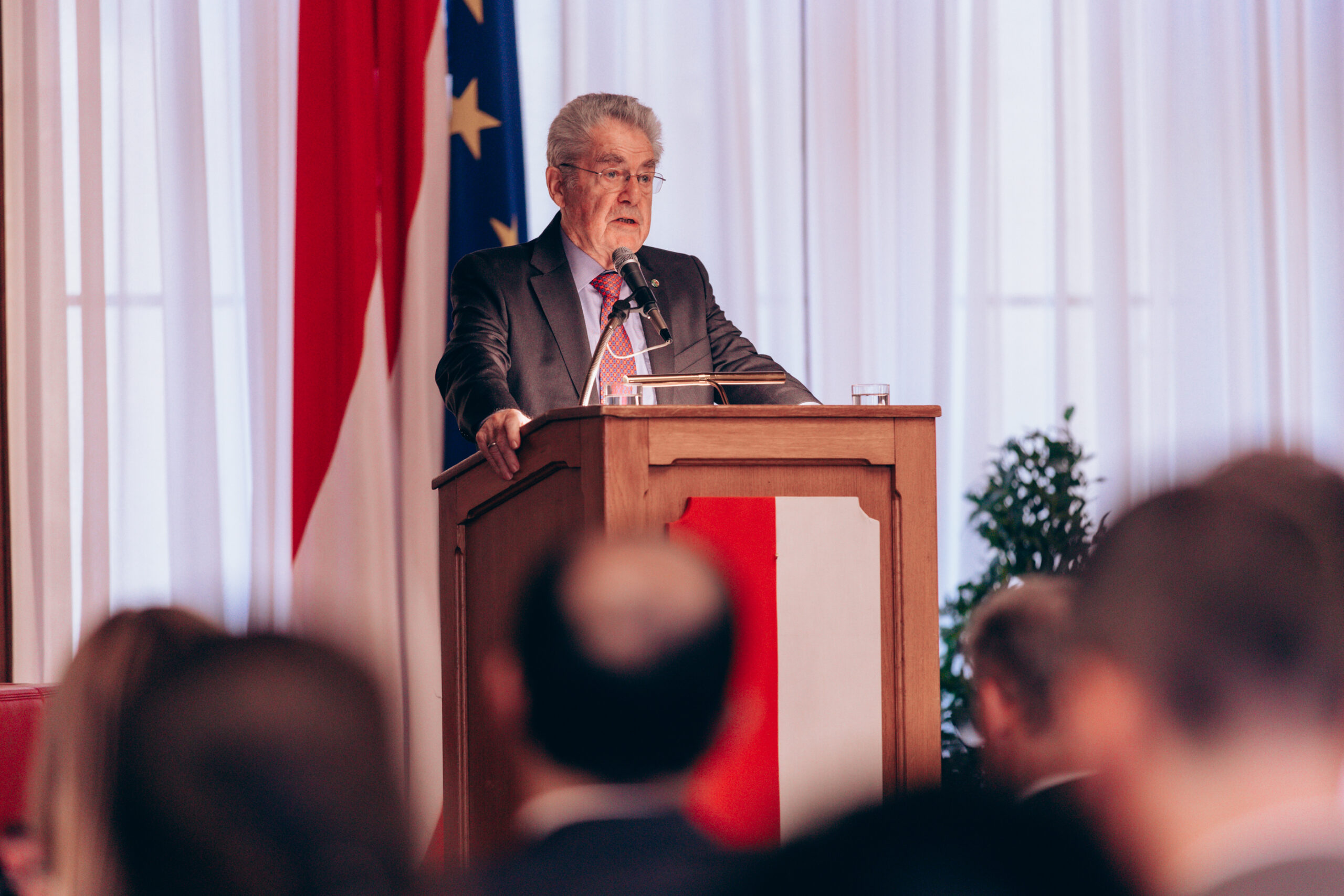
Former Secretary-General Ban Ki-moon delivered a compelling keynote speech, praised the essential contributions of the IAEA and the CTBTO to global security. Underlining their technical excellence, impartiality, and dedication to the needs of their constituent states, he lauded the IAEA and the CTBTO as some of the most trusted institutions in the multilateral system.
“At the international organizations in Vienna much of the quieter, detailed, technical work is done every day, which is indispensable for keeping people and the planet safe from nuclear disaster.” – Ban Ki-moon
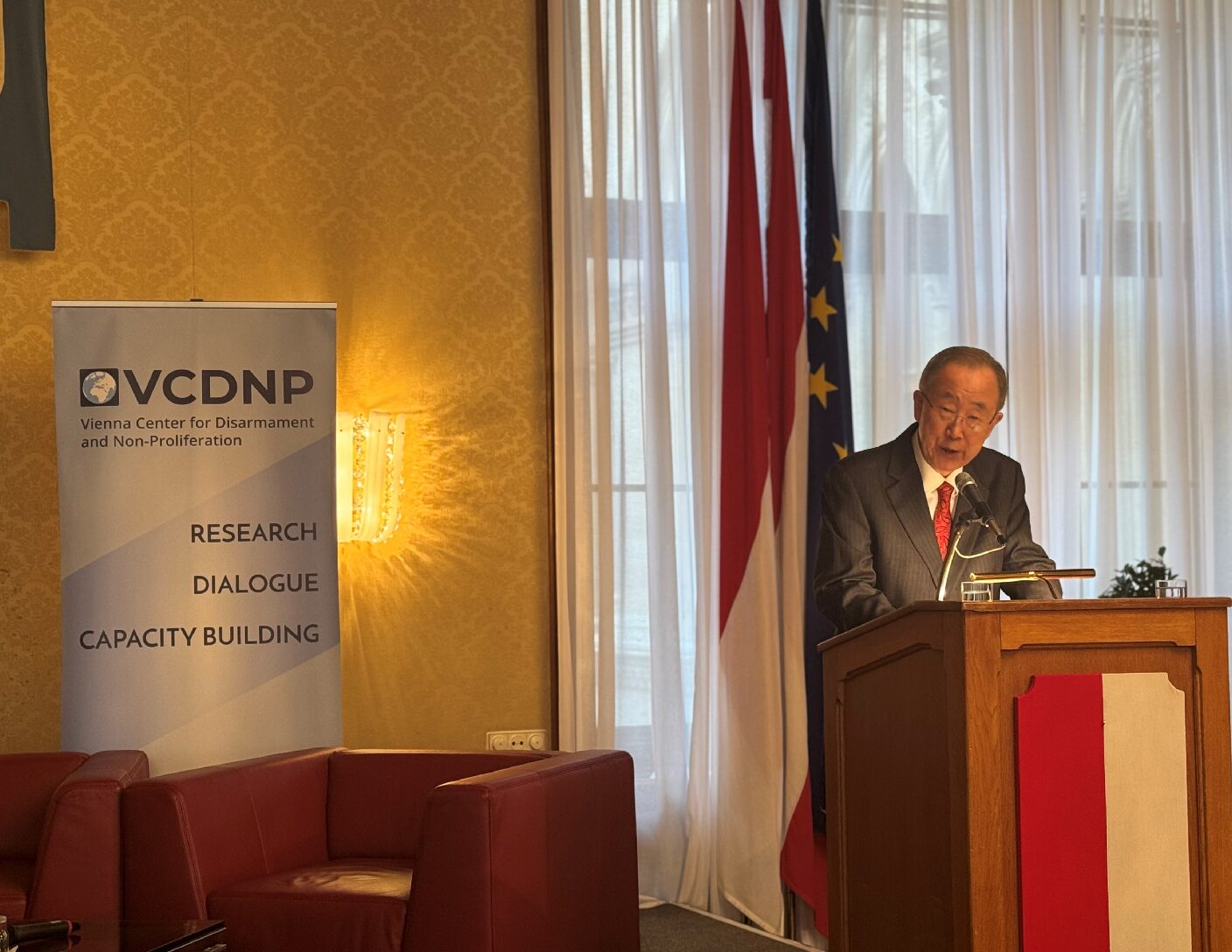
Warning of mounting challenges, including expanding nuclear arsenals, Russia’s threats to use nuclear weapons in its war against Ukraine, deepening ties between Moscow and Pyongyang, and others, Secretary-General Ban called for urgent action in three key areas:
With view of the upcoming 2026 Review Conference of the Treaty on the Non-Proliferation of Nuclear Weapons (NPT), Secretary-General Ban advocated for an explicit commitment against using nuclear weapons and threats thereof.
“I call on all states, especially those with nuclear weapons, to uphold multilateral frameworks and affirm unequivocally that nuclear weapons must never be used again. The nuclear taboo must not be broken.” – Ban Ki-moon
In the face of novel risks posed by cyber-attacks on nuclear infrastructure and new weapons, powered by artificial intelligence, he asked states to act with resolve and agree the necessary guardrails to ensure that human rights are protected, and that international humanitarian law is upheld.
Reminded of the scars of nuclear devastation and human suffering he saw during visits to the nuclear test site at Semipalatinsk, Kazakhstan and the Hiroshima Peace Memorial, Secretary-General Ban called for greater visibility of the destructive effects of nuclear use and testing on humans and the environment.
He expressed his wish that the tireless work of the 2024 Nobel Peace Prize recipient Nihon Hidankyo, representing the survivors of the nuclear bombings of Hiroshima and Nagasaki, will strengthen global efforts on long-overdue victim assistance, environmental remediation, and disarmament.
“As we move forward, let us keep the memory of the lives lost to the use and testing of nuclear weapons worldwide in our hearts.” – Ban Ki-moon
The following panel discussion, steered by Executive Director Elena K. Sokova, explored potential solutions to pressing security challenges, from the impact of geopolitical rivalry on multilateralism and the international order to the risks that emerging technologies may pose for the nuclear non-proliferation regime.
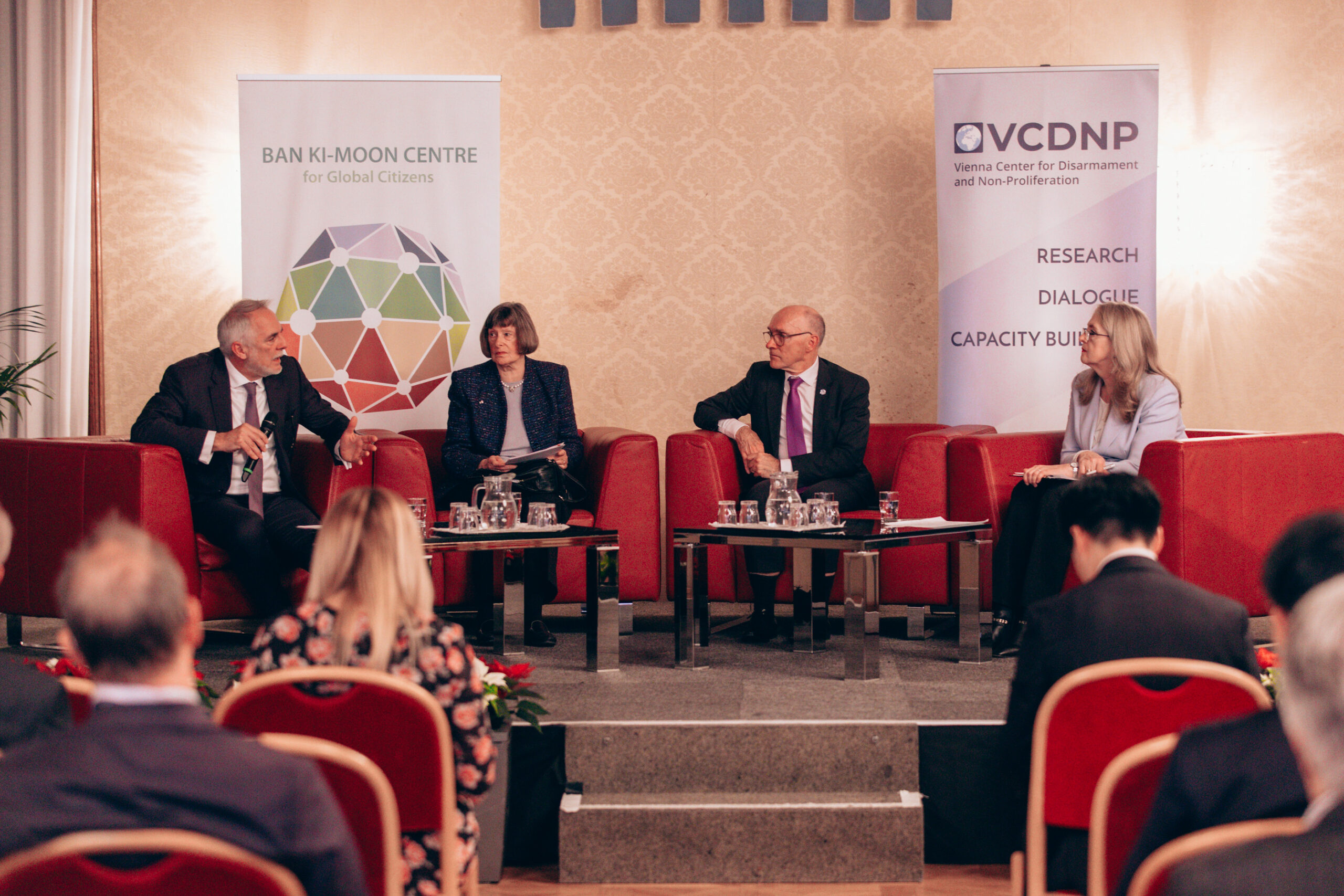
CTBTO Executive Secretary Dr. Robert Floyd warned against resumed nuclear weapons testing by any nuclear-armed state, which could erode the global norm against testing, potentially triggering a domino effect. He underlined the indispensable role of the CTBTO’s International Monitoring System (IMS) in detecting nuclear explosions and verifying adherence to the no-testing norm.
Acknowledging the heightened risk of cyber interference and data manipulation produced by technological progress, Dr. Floyd also underscored the positive contributions that AI is expected to make to the IMS, enabling it to detect even smaller nuclear tests below a 1 kiloton yield. He stressed the CTBTO’s efforts to preserve the integrity of IMS data through backup systems and redundancies.
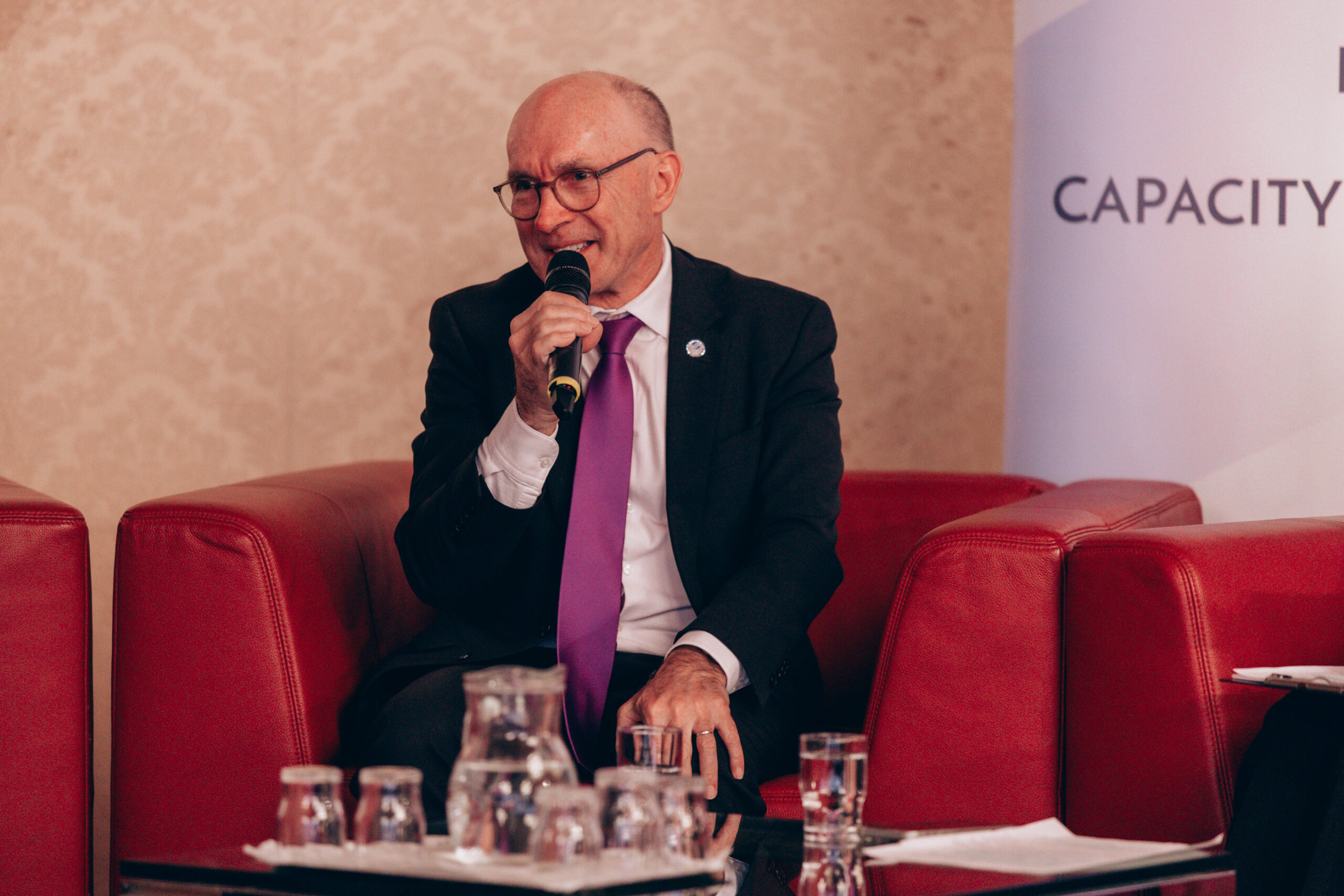
Angela Kane shared concerns over eroded confidence in multilateral disarmament frameworks while calling into question the effectiveness of structural reform of UN bodies to deliver progress on disarmament. New milestones could be achieved outside of traditional mechanisms, as illustrated by the 1997 Mine Ban Treaty, adopted outside of the UN.
Ms. Kane identified a ten-point agenda for advancing risk reduction and disarmament, focusing on universalising existing treaties, enhancing the transparency of nuclear arsenals and policies, and addressing emerging technological risks. She also emphasised the need for greater civil society engagement, particularly from the Global South.
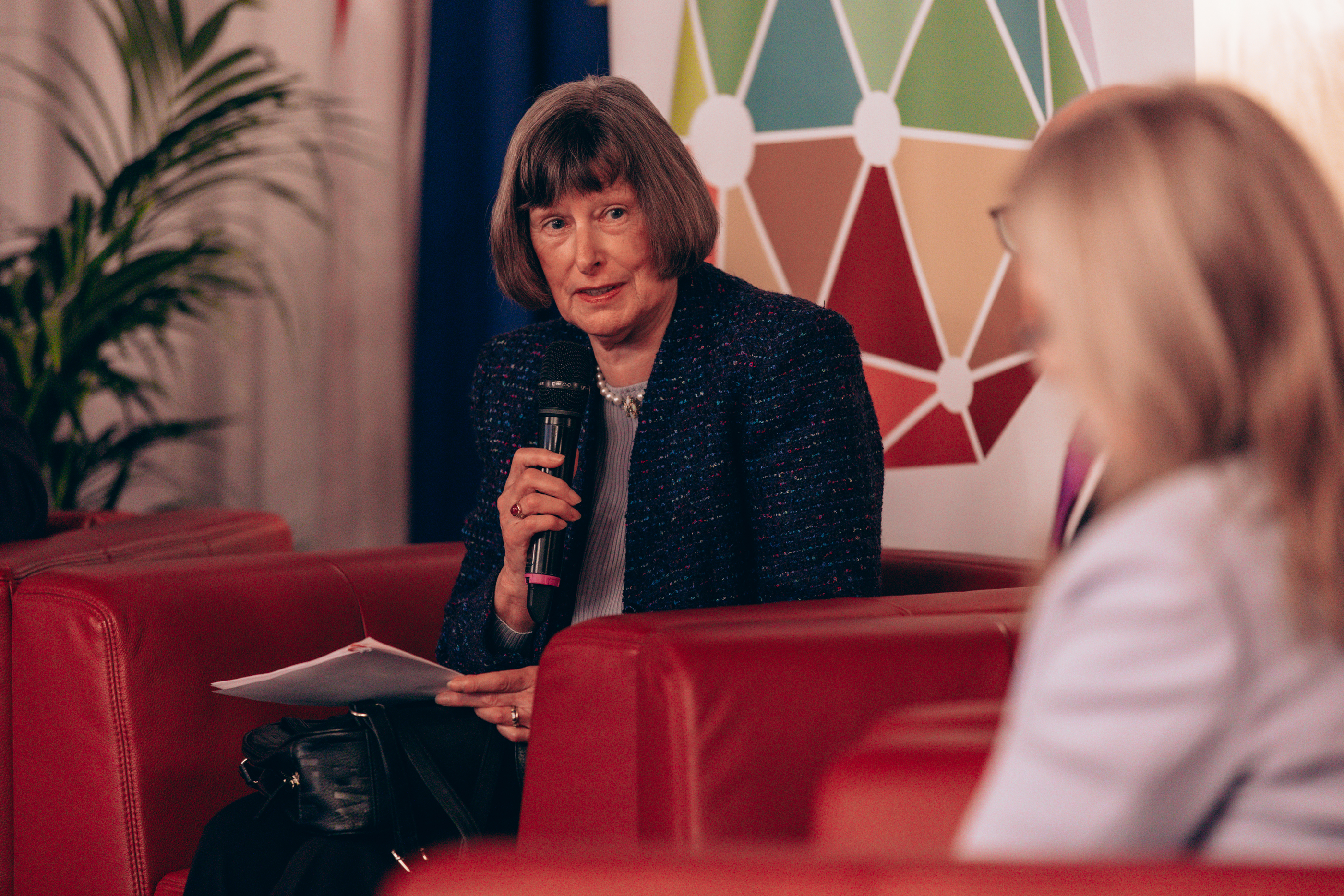
Ambassador Alexander Kmentt stressed the urgency of addressing nuclear risk, calling for a comprehensive approach that includes broader engagement of the public to challenge reliance on nuclear deterrence.
He also highlighted the importance of scientific evidence on the catastrophic effects of nuclear weapons to support the divestment of national security policies from nuclear deterrence. Describing the TPNW as a vital instrument for reframing nuclear weapons as a global security risk and charting a credible path beyond current paradigms, he highlighted the role that the Treaty can play in shoring up the norm against the use and threat of use of nuclear weapons by underscoring the inacceptable humanitarian harm they cause.
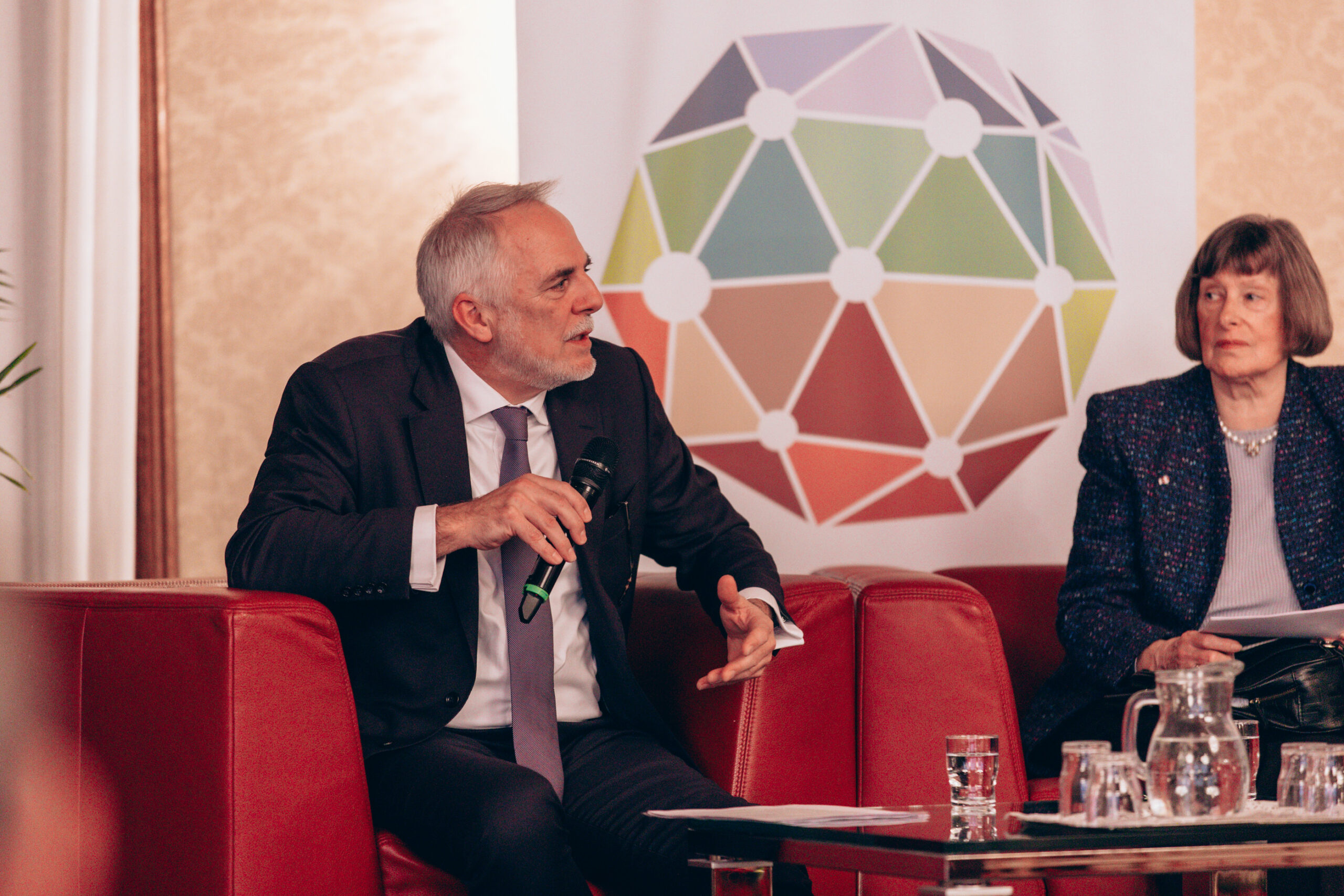
The VCDNP is grateful to the Ban Ki-moon Centre for Global Citizens and to the City of Vienna for their partnership in organising this event.
